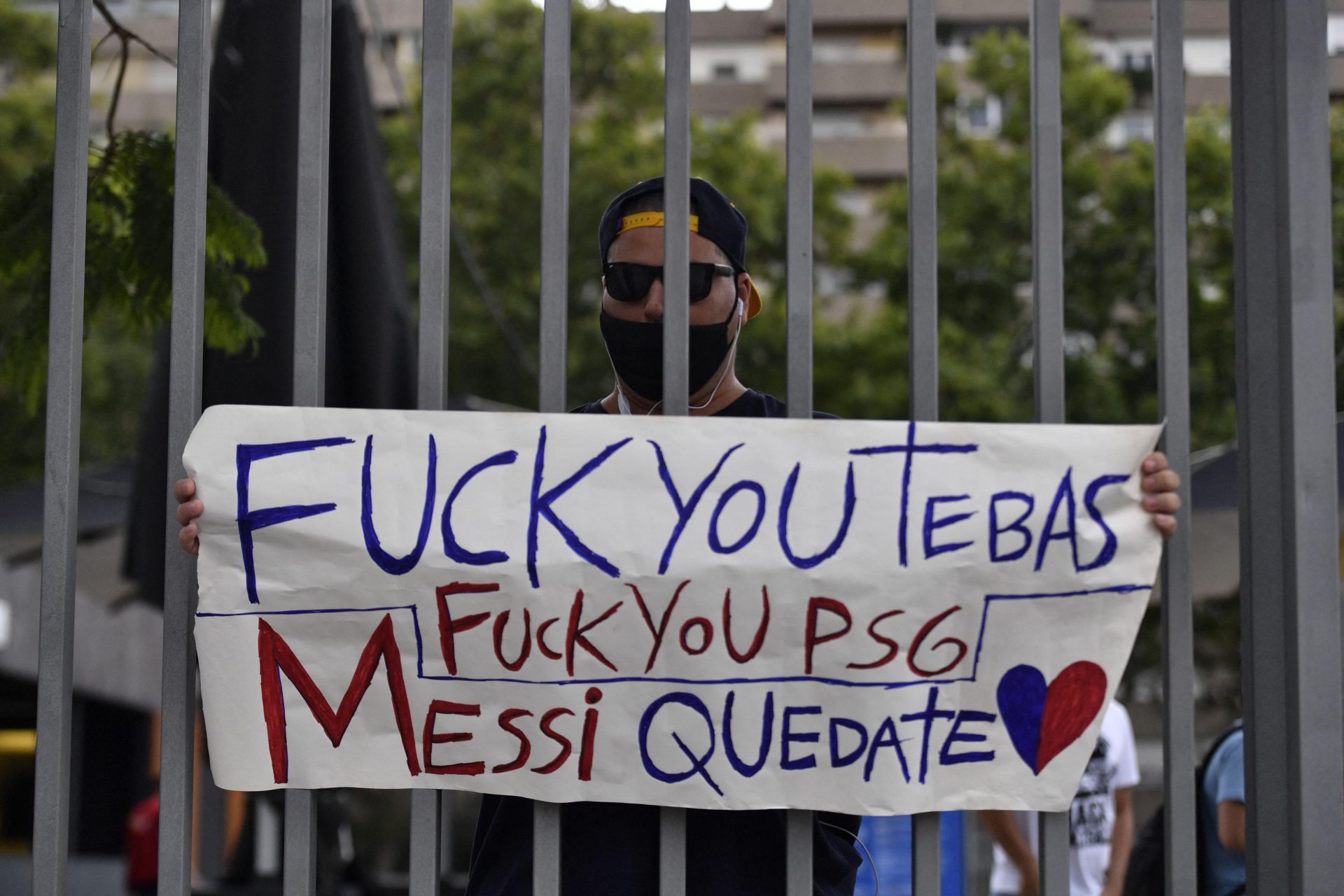Who owns football? England is kneedeep in the pretence that a government riddled with sleaze can reimpose the notion that it is The People’s Game.
We can laugh, we can cry, or we can wait until the Spring when Nadine Dorries promises to start radical reform by appointing “a strong independent regulator to secure the future of our national game.”
So, be gone all oligarchs, sheikhs, and American billionaires whose money lures many of the world’s finest players to the Premier League. Not that the likes of Roman Abramovich, Sheikh Mansour or the Glazer brothers are frequent fliers to the clubs that form part of their investment portfolio.
One thing definitely ruled out is England following the German route of the 50+1 ownership rule, whereby the balance of power in every club rests, by one vote, with the supporters. It works, provided you overlook Bayern Munich winning the Bundesliga nine years out of 10, because three former playing greats took the time to add business acumen to their inside knowledge of how to run the club.
Karl-Heinz Rummenigge, Uli Hoeneß and Franz Beckenbauer proved as astute with their brains as their feet. They starred for Bayern, then worked their way up to the presidium. That line of succession has now ended with Herbert Hainer, a former chief executive of adidas, heading the board.
Still, 50+1? The fan, or fans, maintain a statutory presence that satisfies Bundesliga rules of governance. That should also apply to Hoffenheim, a village club risen to top professional status by the largesse of one man, Dietmar Hopp. He is a self-made billionaire who put hundreds of millions of the billions he made from computer software to raise his village club – TSG 1899 Hoffenheim – to compete with the best. Hoffenheim are not popular in Germany, but what Hopp did was equivalent to Jack Walker pouring millions from his steel production fortune to restore Blackburn Rovers and help win the Premier League in the early 1990s.
In a way, that is only a notional distortion of the local trader supporting his boyhood team. The fan in the boardroom.
The UK may have left Europe, but we play by their football governance. UEFA may not have nailed Manchester City, or Paris SaintGermain, in the courts over so-called state “financial doping” but the big leagues of Europe also blur the financial rules.
The Spanish are doing finance their own way. They also have two omnipotent powers, Real Madrid and FC Barcelona. Or had, until Barça overshot their own budget. However, La Liga is attempting communal strength in football under a man who was not even born in the country.
Javier Tebas, 59, is in his third term, re-elected unopposed since 2013, as president of La Liga, which governs the top two divisions. Crucially, Tebas is a lawyer whose forte is bankruptcy law and whose passion is football.
He was born in San José, Costa Rica, and educated in Zaragoza, itself an autonomous region of Spain. So, not surprisingly, Señor Tebas has different, at times forcefully applied, views on governance.
He admired Franco, and applies uncompromising leadership to football governance. He is a Real Madrid fan who nevertheless convinced Barcelona and others to sign up to a draconian rewriting of legislation, starting with more equitable distribution of television income.
Before Tebas, Madrid and Barça set their own TV tariff on the basis that the world was most interested in their galaxy of players.
But I recall Josep Bartomeu, the now-deposed Barcelona president, supporting Tebas’ redistribution of TV money as the way to preserve competition in La Liga.
Tebas went further. He excoriated the Spanish practice of his predecessor, Ángel María Villar, who fell with others caught in the FIFA financial corruption. And within four years Tebas published accounts showing that financial reforms reduced the collective debts of the clubs to the treasury from 647m euros million to 184m euros.
“Although we differ ideologically,” commented Jorge Valdano, the former centre forward, who became Real Madrid’s general manager, “I will say that Tebas did more for Spanish football than all his critics combined. Since he arrived, La Liga became richer, more democratic in its distribution of money, more rigorous with contracts, and more respectful of its sense of identity.”
Cometh the hour, cometh the man. And not simply by making the league a collective in which economic rights are more equally shared to ensure the survival of competition.
Tebas hasn’t stopped at the treasury.
He pledged to stamp out corruption and to make match tickets more affordable.
He planned for Spanish League matches to be held abroad – in Miami, for example. He declared that if Catalonia broke away from Spanish political rule, then Barcelona and Espanyol (Reial Club Deportiu Espanyol de Barcelona) should be excluded from La Liga.
Far be it from this column to suggest that England, the mother country of football, needs a dictator at the game’s helm. But even a stranger to football such as Nadine Dorries must see that football governance is too important to be left to football.
The Football Association lost that influence the day it ceded power to the Premier League in 1992, paving the way for foreign owners with far-from-communal interests or old-fashioned sporting fair play.
Does football need a dictator?
The Football Association lost influence over the sport when it ceded power to the Premier League in 1992. Now, ROB HUGHES asks who owns football?




